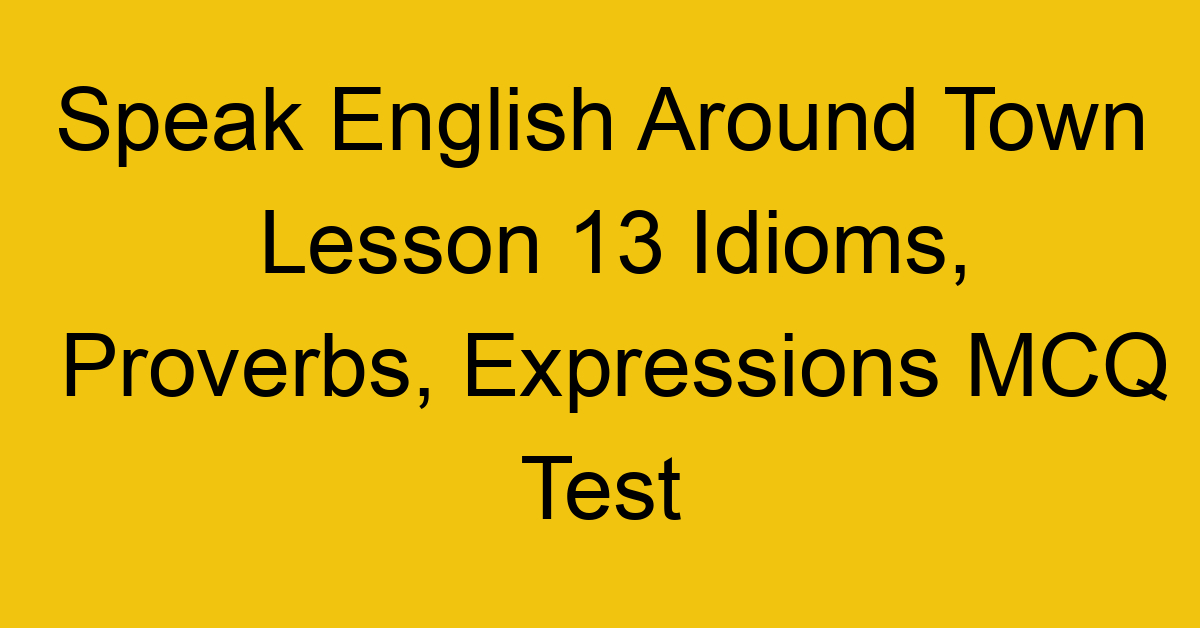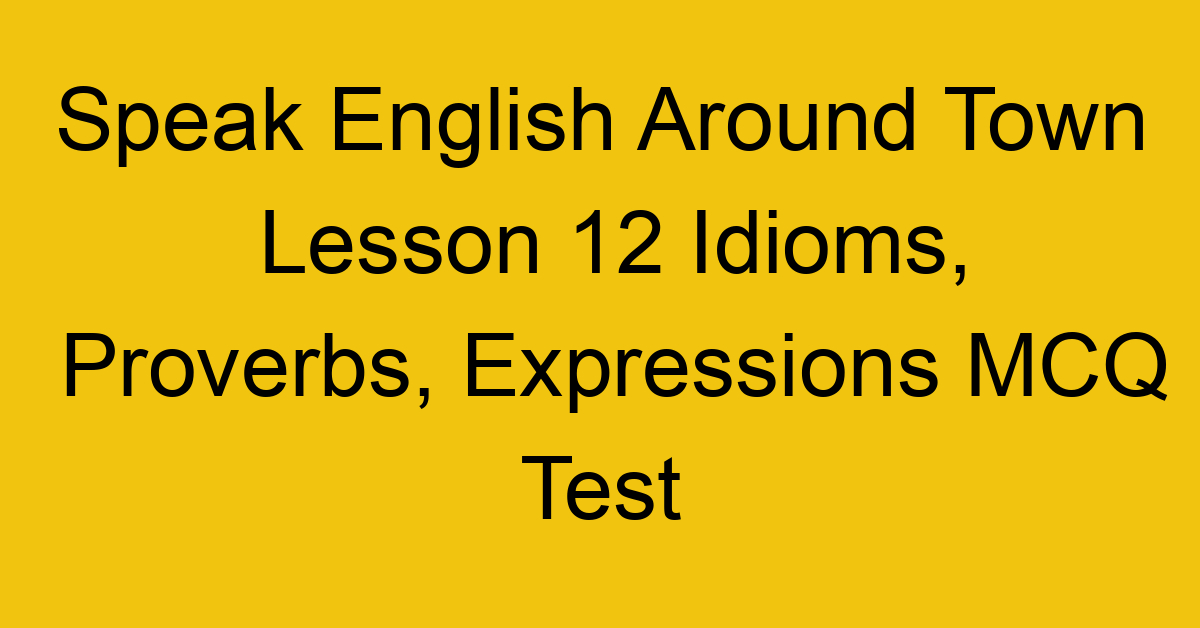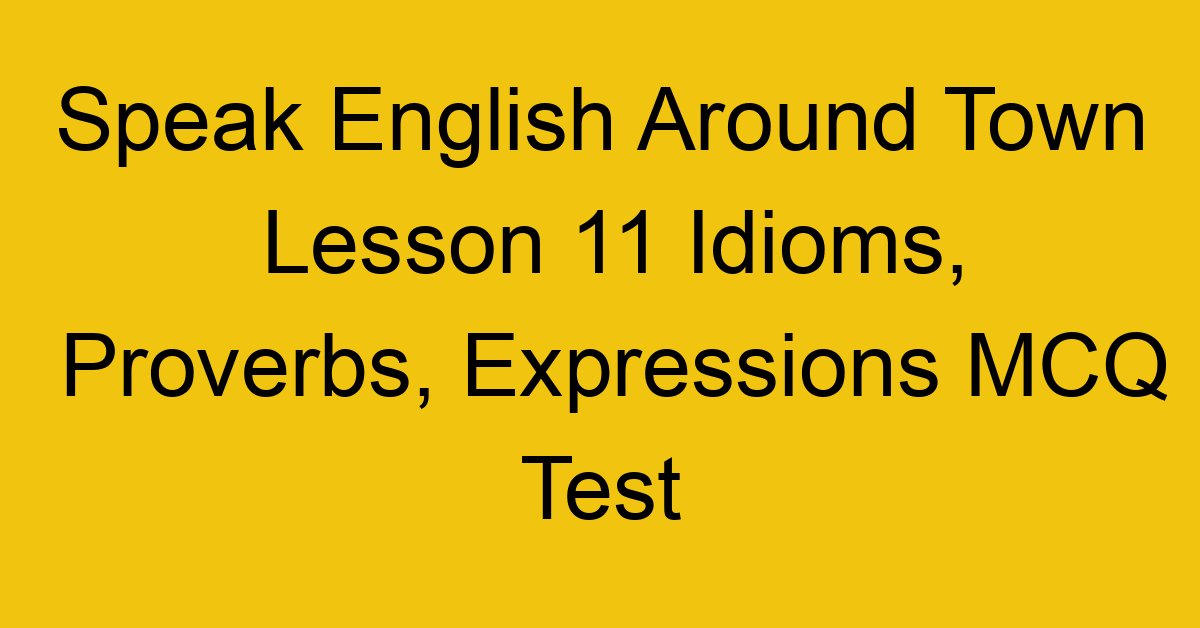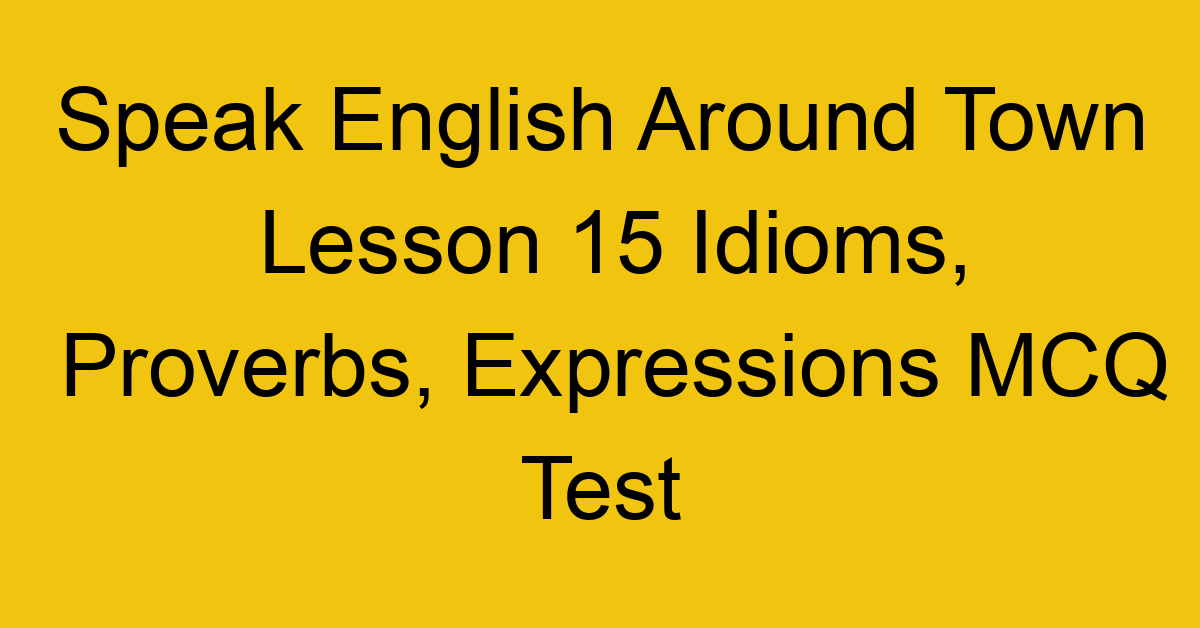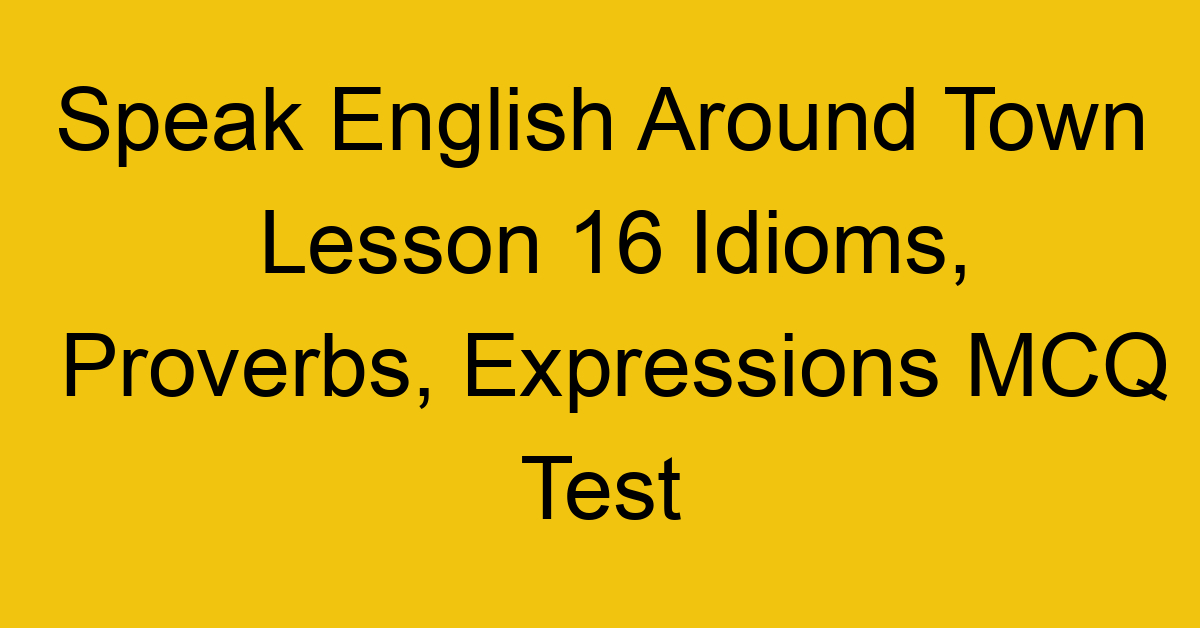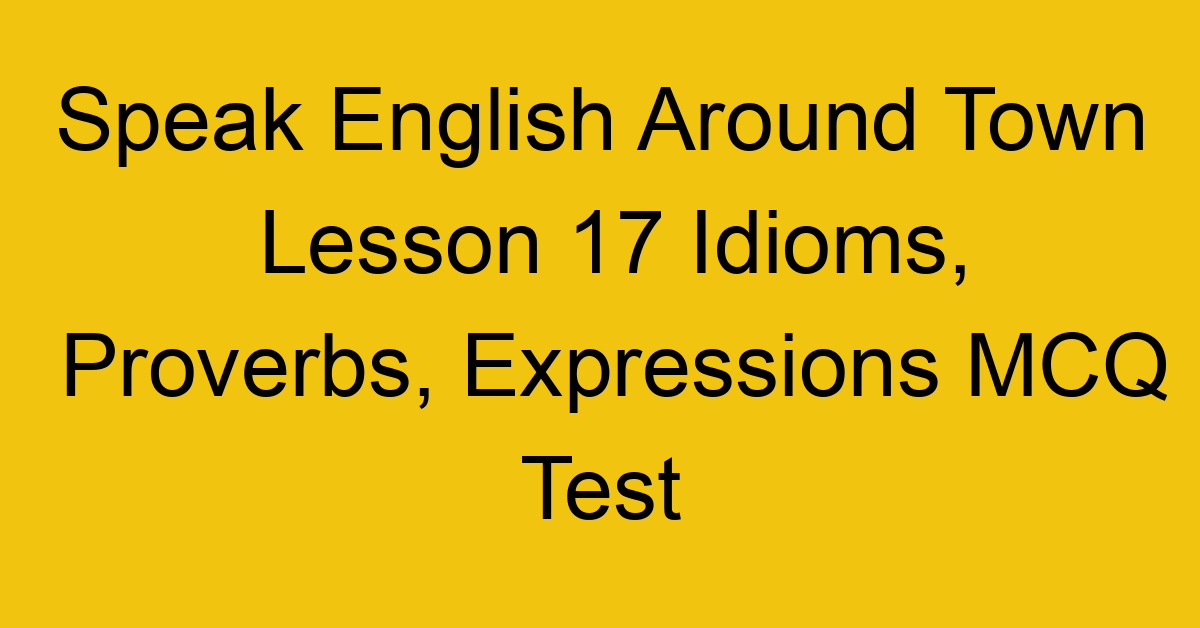Speak English Around Town Lesson 14 Idioms, Proverbs, Expressions MCQ Test
LESSON 14 – Making Introductions
MAKING INTRODUCTIONS
At the dinner party, Lisa introduces Lori and Mike to Jane and Kyle Chen. Lori and Jane realize they’ve met previously through work.
Lisa: Let me make some introductions. Lori and Mike Garcia, this is Kyle and Jane Chen.
Lori: Nice to meet you.
Kyle: I’m sorry, I didn’t catch your names.
Lori: I’m Lori and this is my husband Mike.
Lisa: You guys have a lot in common, so I’m sure you’ll hit it off.
Jane: Lori, you look familiar, but I can’t quite place you.
Lori: Your name rings a bell. Do you work at Harco Insurance?
Jane: I used to be in sales there. I left about a year ago.
Lori: I used to work at Comtek International. You sold us our insurance plan.
Jane: Yes, that’s right. It’s a small world!
Lori: It sure is. I’m glad we’ve crossed paths again.
Jane: Me too. What have you been up to since you left Comtek?
Lori: It’s a long story. Let’s grab some drinks, and I’ll fill you in.
Language Lens: “Used to”
Use used to + the base form of the verb to discuss past situations, conditions, or habits which are now different or finished.
Note: “Used to” is pronounced as one word: useta [yooz-ta].
Examples:
◼ Sara used to live in New York, but now she lives in Chicago.
◼ Jason used to cook dinner every night, but now he gets takeout several times a week.
◼ Our mailman used to come at 11 a.m. every day, but now he comes later.
◼ Bill used to be a smoker.
=> With questions and negatives, the “d” on “used” is dropped.
Note: “Use to” is pronounced as one word: useta [yooz-ta].
Examples:
◼ Did you use to play football every Saturday?
◼ Did Jeff use to ride his bike to work?
◼ Susan didn’t use to believe in ghosts.
◼ I didn’t use to like apples, but now I eat one every day.
Use used to + -ing form of the verb to describe something that you are in the habit of doing.
Examples:
◼ I’m used to cooking dinner every night.
◼ I’m used to driving an hour to work.
◼ I’ll never get used to living so far from downtown.
◼ We’re used to sleeping in* on Sundays.
* sleep in – to sleep late on purpose (and not because you forgot to set your alarm!)
IDIOMS
- (to) cross paths
→ to meet, especially by chance
Example: While I was vacationing in Florida, I crossed paths with an old friend from high school.
- (to) fill someone in (on something)
→ to update someone; to tell somebody what’s been going on
Example: Can you fill me in on what’s happening with our new business partner in China?
- (to) grab some drinks
→ to get something to drink; to go out for a drink
Example: Do you want to grab some drinks after work?
- (to) have a lot in common
→ to share similar interests or have similar backgrounds
Example: Julie and I have a lot in common, so we always have lots to talk about when we see each other.
- (to) hit it off
→ to get along well with someone
Example: Carl hit it off with a woman he met on Match.com, and now they’re getting married.
- I can’t quite place you
→ I’ve seen (or met) you before, but I can’t remember where or when
Example: Hi, I’m Charles Kim. I know we’ve met before, but I can’t quite place you.
- I didn’t catch your name
→ I didn’t hear your name when you were introduced
Exampel: “I know we were introduced earlier, but I didn’t catch your name.” – “I’m Svetlana Petrenko.”
Note: This is a polite way of asking somebody to repeat his or her name.
- (to be) in sales
→ to work in a sales position
Example: Bill used to be in sales for Comtek, but he recently took a new job in marketing.
NOTE: You can also be in marketing, in finance, in real estate, in banking, or “in” other fields of work.
- It’s a long story
→ there’s lots to say; a lot has happened; it’s complicated
Example: “Why didn’t you accept the job offer with the advertising agency?” – “It’s a long story.“
- It’s a small world!
→ this expression is used when people are surprised to find out they know each other from some past experience
Example: I ran into my college friend from Chicago in a coffee shop in Vienna. It’s a small world!
- (to) look familiar
→ to look like someone one already knows or has seen before
Example: That actress looks familiar. Wasn’t she in the movie Midnight in Paris?
- (to) make some introductions
→ to introduce people
Example: After a few more people arrive, I’m going to make some introductions.
- (to) ring a bell
→ to sound familiar; to sound like something someone has heard before
Example: “You graduated from Yale in 2007? Did you know Jeremy Larson?” – “No, that name doesn’t ring a bell.”
- What have you been up to?
→ What have you been doing?
Example: I haven’t talked to you in a long time. What have you been up to?
